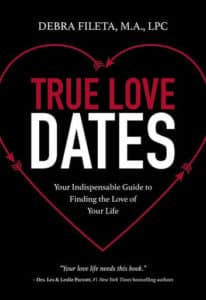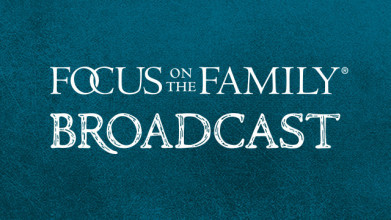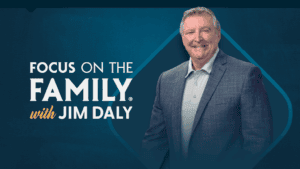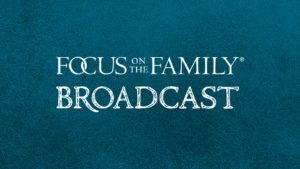Preview:
Debra Fileta: You are responsible for protecting your heart. That includes physical, interactions, that includes emotional interactions, and spiritual interactions, and I think we do ourselves a disservice when we start becoming prematurely one before the wedding day.
End of Preview
John Fuller: That’s Debra Fileta, sharing about having healthier dating relationships, and she joins us again for Focus on the Family. Thank you for being with us today. Uh, your host is Focus president and author Jim Daly, and I’m John Fuller.
Jim Daly: John, I’m excited about the content today. You know, once in a while, we come to the dating side of this. That might be the 20 something, the 30 something, and people are, uh, forming their families later in life, and I think it’s really important that we have some discussion about what God’s calling you to in the way of relationship, what does it mean to be, uh, committed to the Lord, your identity in Christ. We covered some of that yesterday, and we also, uh, discussed being the person with the qualities you wanna see in your partner. I thought that was interesting, Debra Fileta, our guest mentioned that.
John: Mm-hmm.
Jim: You know, the more you deepen your relationship with the Lord, the deeper those people that you hang out with probably will be.
John: Mm-hmm.
Jim: And I think that was true. It’s true. My journey with Jean, I mean, uh, that’s when I was getting committed to the Lord in a deeper way, and boom, I found Jean, and … Or the Lord found Jean for me.
John: (laughs)
Debra: (laughs)
Jim: And she was equally yoked with me in that.
John: Yeah.
Jim: She was really developing her relationship with the Lord, and almost what I would say the exact same way. And it was such a wonderful and, uh, reinforcing experience for me-
John: Mm-hmm.
Jim: … that the Lord had introduced us, and we’re kind of right at the same place spiritually, emotionally, et cetera. So I’m looking forward to today as well.
John: Uh, me too, Jim, and Debra Fileta, uh, is so good. If you didn’t see, uh, the last video or hear the last episode, uh, hit the website. We’ve got links to YouTube and our broadcast app, and, uh, there’s so much more so you can follow along with us, uh, on this one. Debra has written a number of books. She’s a counselor, she’s a podcast host, and, uh, one of the books that she has written that really is, uh, all about this topic is called True Love Dates: Your Indispensable Guide to Finding the Love of your Life. We’ve got copies of that here. Give us a call, 800, the letter A and the word FAMILY or stop by focusonthefamily.com/broadcast.
Jim: Debra, welcome back.
Debra: Thank you. It’s good to be back.
Jim: Debra, I should have asked you this last time, um, but let me ask you to speak to the parents for a minute, ’cause you talked about your own experience yesterday and how …
John: Mm-hmm.
Jim: You know, uh, uh, I think understandably, it was a different era, things were a little more, uh, controlled, you might say, that parents were, y-you know, kinda kissing dating goodbye, even don’t let your kids date, ’cause, you know, that only goes negative. So speak to the parent for a minute of … Well, me, I’ve got, uh, 20 somethings. What would you say to me about how to make sure I don’t affect my children in an unhealthy way when it comes to the dating experience? What should I be saying to my boys in their 20’s about dating?
Debra: Yeah. Well, first, I think it’s important for parents to understand that dating is not the enemy, and if we present dating as the enemy to our kids, they’re probably gonna rebel.
Jim: Yeah.
Debra: Dating’s not the enemy, but how we date has to be done in a healthy way, and so encouraging our kids to have healthy interpersonal relationships with people, uh, particularly people of the opposite sex, is something that starts at a young age even with their friendships and their engagements with people of the opposite sex, and learning principles of, “What does it look like to engage with people in a healthy way?” You know, we were joking yesterday about how the Bible doesn’t necessarily give us a Biblical model for dating outside of maybe arranged marriages …
Jim: Right. (laughs) Right.
Debra: … but it does give us principles on how to interact with people in a healthy way, and we can apply those principles to dating, and-and that’s the thing we need to focus on when we’re talking about our children.
Jim: Uh, last time, we did talk about, uh, the right thing of having your identity in Christ, and again, if you missed it, go back and listen to it. We’re not gonna rehash it, but there are other distractions in relationship too. Uh, you-and you may have a modest understanding of your identity in Christ, let’s make that assumption, that it’s growing, which I think for everybody. It hopefully is growing a little bit every day, maybe sometimes quickly, other times more slowly, but what are some of those other distractions that take us off healthy relationship, healthy dating?
Debra: Yeah. So if we kinda look at it in three forms, and, uh, True Love Dates is broken into three sections. The first section is dating inward and getting to know yourself. The next section is dating outward, and understanding what it means to have healthy interpersonal relationships with people. I think sometimes, people get into the world of dating, and they don’t know what they want, they don’t know what’s healthy from what’s unhealthy, and it’s kinda like trial by error and see how things go rather than having a healthy idea, a focused idea of what I’m looking for and what I’m not looking for in relationships.
Jim: Yeah. You-You mentioned in, in the setup … Uh, I talked about it a bit. I was really, actually really pleased when Jean and I met, where we were both at spiritually, we … I felt like we’re right in a very similar space, even using the words. We’re in the, exactly the same spot, uh, spiritually.
Debra: Mm-hmm.
Jim: Uh, I-in, in your book, you addressed that a bit. Is that something we need to look for? Is that a good thing? Is that a bad thing? I would think that being equally yoked means something. That’s a scriptural reference.
Debra: For sure.
Jim: So, how- how do we view that? And if, you know, also, you can be very engineering-minded about this. Let me speak to that side of the brain, that, you know, if a person that you’re pursuing is not-e, not exactly where you’re at, do you just check that box and move on because they’re not close enough to where you’re at spiritually?
Debra: Well, we have to understand our majors from our minors.
Jim: Okay.
Debra: And I think sometimes, people put everything in the majors category or everything in the minors category, like his height is just as important as his faith …
Jim: (laughs)
Debra: … or his hair color-
Jim: It’s pretty funny, actually.
Debra: … is just as important as his relationship with the Lord. We have to know our majors and our minors, and I believe that someone’s walk with God, someone’s faith needs to be at a similar level to yours, because if you think of life like a triangle, and God is at the top of the triangle, and each of us in a relationship are at the bottom two sides of the triangle. As I move towards God, as my partner moves towards God, we naturally move up that triangle and move closer to one another. And if somebody’s not on that journey with you, that faith journey, it’s gonna cause problems along the way. Uh, one quote that I heard growing up was, “Run after Jesus as hard as you can, and then look over and see who’s running alongside of you. If they’re keeping up with you, there’s a good chance that that is a good person to date.”
Jim: Yeah. Let me ask you this, um, you know, especially in the marriage context, ’cause you can look over and say, “How come you’re not keeping up with me?” Uh, speak to the problems of comparison in that context as well, because that, that could become unhealthy, uh, so how do you encourage one another without saying, “Hey, uh, look at me, and how come you’re not keeping up with me spiritually?” I mean, I’m, I’m being facetious-
Debra: Yeah, yeah.
Jim: … but it happens.
Debra: Well, believe it or not, some of the concepts that we apply in dating, we need to tweak for marriage.
Jim: (laughs)
John: (laughs)
Debra: And here’s why. You know, before you purchase something at the store, it’s up to you to do due diligence to research that product, to look at the reviews, and make sure it’s a good fit for you, because once you purchase it, now you’ve got a deal with what you’ve purchased, and it looks a little different after the fact. So prior to the commitment, that’s when we really have to be careful, because once we’re committed, we have to approach it, uh, a little bit of a different way. It’s not about, “Keep up with me,” at that point, it’s about, “Hey, let me encourage you on this journey,” but I don’t apply that attitude of, “Hey, let me encourage you on this journey to dating because you’re not responsible for that person’s relationship with the Lord.
Jim: Mm-hmm.
Debra: Until the day that you say,” I do,” you are not one in Christ.
Jim: Well, that’s really good. Let me, let me ask you this too, because a lot of people, this can be a very sensitive question, but even in Christian relationships now, and again, in the 20’s and 30’s, um, they’re becoming one before the commitment …
Debra: Right.
Jim: … biblically. Speak to that issue of, uh, uh, giving yourself over physically before, before you say, “I do”?
Debra: Yeah. You know, in one section of True Love Dates, when we talk about dating outward, a big part of interpersonal relationships is having healthy boundaries because the Bible says, “Guard your heart.” Guard your own heart. You are responsible for protecting your heart. That includes physical interactions, that includes emotional interactions, and spiritual interactions, and I think we do ourselves a disservice when we start becoming prematurely one before the wedding day. Uh, i-it confuses us. When-when you have such deep levels of-s, emotional, spiritual, physical intimacy, even when you see problem spots arise in a relationship and you know it’s not a good fit, you’re enmeshed at that point, that it’s hard to go back.
Jim: Yeah.
Debra: And that’s why it’s important to protect your heart with boundaries before that point.
Jim: Let me move to the list that, uh, you referred to, John earlier …
John: (laughs)
Jim: … that you created with Dena, I guess, in mind.
John: Yes. Okay.
Jim: Uh, sure. But you, uh, yu-you have a friend that gave you kind of an interesting insight, and I think she broke it down into red, yellow, green. Um, uh, describe that list of your potential future spouse, and the red, yellow, green. I’m already putting my own-
Debra: Yeah.
Jim: … characteristics (laughs) in there.
Debra: When it comes to understanding what you want in a relationship, and also when it comes to understanding the majors and the minors, it can be really helpful to have a list. You can do this in one of two ways. Before you start dating, the concept of red, green, and yellows means, “Okay. What are the red flags, things I am not going to accept in a relationship? What are the yellow flags, the things that are minor, you know?” Maybe he’s late and I’m not a fan of being late, but that’s a minor. I’ll put that in the yellow category, and then, “What are the greens, the things I’m looking for in a relationship?” And then when you get into a dating relationship, it’s important to, to do, uh, an analysis to kinda take inventory of the reds, greens, and yellows in a relationship, and I always encourage people, if there are red flags, red means stop, because you cannot fix those reds. No matter how hard you try, no matter how much you love, no matter how much you bring them to church and love Jesus, it is not up to you to change those reds.
Jim: Can you give me-e, some examples of what those reds and yellows could look like?
Debra: Yeah.
Jim: I think I get green. Everybody gets green. (laughs)
Debra: Yeah, right, the thing you’re looking for.
Jim: But what would be some of the reds versus the yellows, and do some people confuse yellow with red?
Debra: I think people confuse yellow with red often, something yellow might be an area where you need to proceed with caution. This include maybe someone’s sexual history, their family of origin problems, unhealthy habits they have, but I think the main question to ask yourself is, “Could I live with these behaviors if they remain unchanged?”
John: Mm-hmm.
Jim: So kinda eyes wide open?
Debra: Right, but put it this way. The … Uh, he-here’s what’s interesting. It’s going to look different for each person, but I think in God’s Word, we can find general principles of what a red looks like, right? When we talk about addictions, being enslaved to something other than Christ …
Jim: Mm-hmm.
Debra: … that’s a red, because it shows that there’s an area of our life that we need to deal with, and I’m including pornography addictions, alcohol and drug addictions in that list, and when there’s an addiction in someone’s life, that is something that you cannot heal. Only God can heal that.
Jim: Yeah.
Debra: And I think sometimes people use the process of dating in hopes that it’s gonna heal this person …
Jim: Mm-hmm.
Debra: … and then they end up with struggles in their marriage that …
Jim: Yeah.
Debra: … they were never meant to have.
Jim: How … I mean, how … You know, let’s just put this in this context. I know it could work the other way, but a woman who has great affection for this man, who is dealing with an addiction of some sort. She feels like, um, you know, “We can work on this together. We can overcome it,” and she keeps, I-I guess in some ways, it’s a little, uh, delusionary to think that you’ll have a better outcome if you say, “I do.” Ha-how does she, in this context … I know it could be on the, the show on the other foot …
Debra: Right.
Jim: … but the point being, how do you rest yourself from that delusion and say, “Wait a minute. Okay. I need to think this through,” and the friend that’s gonna say, “But the Lord loves him.”
Debra: Right.
Jim: “You can work with Him. It’ll be okay,” just to give some bad advice.
Debra: Yeah, it is bad advice, because we are on an individual journey of healing, and we cannot heal each other. We can help each other, but we can’t heal each other. And the reality is what you see in dating, you will see multiply times a 100 in the magnifying glass of marriage, so what you see is what you get. If you’re seeing struggles today, there’s nothing you can do to change those struggles on your own, and sometimes the best thing is to take a season apart in order for God to work on each of you as individuals.
Jim: Yeah. So it doesn’t have to mean no, it just means we need to become healthier before we move on.
Debra: Right.
Jim: That’s what you’re saying?
Debra: Yeah. Absolutely.
Jim: Yeah.
John: Mm-hmm. This is Focus on the Family with Jim Daly. I’m John Fuller, and our guest today is Debra Fileta. She’s a podcaster, a counselor, an author, and, uh, we’re talking about her book, True Love Dates: Your Indispensable Guide to Finding the Love of Your Life. Contact us today for your copy, 800 the letter A and the word FAMILY. 800-232-6459, or we’ve got the details at focusonthefamily.com/broadcast.
Jim: Debra, let me ask you, uh, about the three types of people, who either display emotional openness or lack it. Uh, what are those three descriptions that you use in the book?
Debra: You know, how we engage in relationships is often a reflection of our beliefs, our experiences, this, uh, things from our past, and so one thing I observed when I’m interacting with people in the world of dating is you have three types of people. The first group are the walls. The walls don’t trust anybody. They have a wall up emotionally, they don’t let their guard down, they’re afraid that everybody’s gonna break their heart and let them down, and that nobody can be trusted.
Jim: They’ve been burned.
Debra: They’ve been burned and they’re afraid it’s gonna happen again, and again, and again.
Jim: Yup.
Debra: And they keep people at arm’s length. Then, there’s the opposite end of the spectrum.
Jim: (laughs)
Debra: The free, I call them. Everybody can come in for free. You know, there’s no ticket necessary and you just come on in no matter who you are. You don’t have to earn trust. I trust you from this start. The problem with that kind of a relationship is they get burned somewhere along the way, because they just let everybody into their life. They throw the list out the window. It doesn’t matter. Come one, come all. The last group, I think is the healthiest group, who applies the fence to the way they do relationships. A fence sees trust as something that has to be earned, and they allow people into their life that are healthy, but they have boundaries to keep out people that are not healthy.
Jim: Yeah. The, and this is so big. I mean, this is great stuff, Debra, really. What are the do’s and don’ts emotionally you mentioned in the book?
Debra: Yeah.
Jim: I mean, I wish (laughs) this is good stuff for anybody who’s dating.
Debra: Well, there’s, uh, emotional boundaries that have to be formed in order for us to have our healthy relationship. We talk about guard your heart and the importance of taking ownership of that. So some things that you can do, number one, is actually by guarding your heart. Let me give you some practicals. I’m talking about emotional intimacy there, and what it looks like to protect yourself from, uh, conversations that are gonna take you down the path of connecting to deeply prematurely. The other thing is to guard your time. I think sometimes people start dating, and they spend every waking moment with that person rather than seeing the importance of continuing to be an individual and allowing the other person to be an individual. The other thing you have to guard is your mind, from allowing it to go down the path of thinking about marriage, and kids’ names, and commitment when you’ve only been dating for a month. The things that are happening in your mind are really important part of protecting yourself, and lastly, guard your conversation. Make sure that the conversation you’re having is in line with the level of commitment, and that you’re not talking about things prematurely, because your heart will also follow those conversations.
Jim: Yeah. Uh, I-in the end, we need to check our reality and expectations=s over dating. Um, what are some things that relationships can’t do? We’ll ask it from the other direction.
Debra: There’s so many things relationships can’t do that we expect them to do, right?
Jim: (laughs) Like meet all my needs?
Debra: Right, relationships-
Jim: Is that a good place to start? (laughs)
Debra: You know, even the concept of soulmate is-is such an unhealthy concept, and I know sometimes people talk about my better half in a light-hearted way, but really God calls us both to a standard of holiness and health, because relationships can’t erase your insecurities, relationships can’t give you purpose, relationships can’t bring you healing. Those are the things we have to take ownership of on our own.
Jim: Debra, let me ask you, uh, uh, some of these dating sites, and there’s so many more Christians now that are meeting through, uh, even Christian-based dating sites, and one of the claims can be, um, you know, we have you go through our survey, your personality type to kind of get rid of the potential candidates that might rub you the wrong way, or you’re not a good fit for. I’ve always struggled with that ’cause it feels like, you know, that’s part of marriage, is God using your spouse and it starts in your dating relationship to begin to kind of, uh, you know, round off those rough edges that you might have.
Debra: Mm-hmm.
Jim: I mean, that’s part of marriage, becoming more selfless, more like Christ. So the core of it, I feel a little conflicted that, you know, I’m in a do a personality profile test and that will discriminate against people that might rub me the wrong way.
Debra: Yeah.
Jim: As you said, its core sounds funny …
Debra: I understand what you’re saying.
Jim: … spiritually.
Debra: Yeah. I understand what you’re saying, and I think the bottom line is that it’s less about how compatible you are and more about your ability to come together, your motivation to heal and change, and grow, and learn. And when you find somebody who has that same level of motivation, even if they’ve got differences, even if they are an introvert and you’re an extrovert, those things can be overcome as long as we are both moving in the direction of healing.
John: Mm-hmm.
Jim: Yeah. And-and again, maybe two or three examples of what relationships cannot do for you, you went through that list pretty quick, but I, I do wanna come back to that because again, I think some people that are overly dependent upon that relationship, um, uh, maybe expecting far too much out of what that person can deliver, especially dating, but then, if you get married, boy, that, that really is an issue, if you have such high expectations about what that potential spouse can deliver.
Debra: Right.
Jim: How do you, how do you get a healthy boundary there and a healthy understanding of expectations in the person you date, and, and for the spouse you may end up with?
Debra: Yeah. I like to think of it as two cups and two half full cups, for example. When you take two half full cups and you put them together in a relationship, you have a whole cup for a little while and it feels good until you realize you’re still two half empty cups, and you’re expecting the other person to fill you up in a way that they can’t.
Jim: Mm-hmm.
Debra: And then you get into marriage, and you’re like, “Why aren’t you filling me up? Why aren’t you giving me what I need? Why am I still feeling insecure? I need more compliments. I need more apologies. I need more this. I need more that,” but at the end of the day, it really comes down to looking at myself and, “How full am I? Am I allowing God to fill me up? Am I allowing other people to help on that process?,” because we can’t put that much pressure on a marriage or it will crack. Now, of course, we expect our spouse to be respectful and kind, but we’re talking about things that our spouse cannot do, and that is to fill us up to overflowing.
Jim: You know, how do you have that discussion as a counselor, uh, as you’re feeling those inadequacies …
Debra: Mm-hmm.
Jim: … you know, i-in the relationship? You’re feeling like, “Well, he’s not meeting this need,” and you’re in the dating sphere. How do you, how do you bring that up? Uh, what’s the right environment to bring that up, and then how do you say, “I need more, um, that-a-girls”?
Debra: Yeah.
Jim: “I need more affirmation. It’s just the way I am. Can you please think about how you can affirm me more? Is … Does that kinda it?
Debra: Well, there’s a healthy level of knowing your need, but then, there’s a healthy level of understanding where your need is coming from.
Jim: Mm-hmm.
Debra: I worked with a woman who is constantly needing more, more, more, more, more from her husband. He’s like, “I’m giving everything I can,” and as we worked together, we realized that a lot of it was stemming from the wounds of her past, neglect and abandonment in her family of origin, and never really dealing with some of those wounds, and then bringing those into the context of relationships.
Jim: Mm-hmm.
Debra: So it was a process of him learning to meet her needs, but it was also a process of her learning to meet her own needs in Christ.
Jim: You had a, uh, kind of a funny illustration about this with, I think your toddler at the time …
Debra: Yeah. (laughs)
Jim: … and, uh, you know, how much, uh, the other person can help you in that need meeting area. What-What did your little one do that gave you this insight into, uh, how people can and cannot meet your needs?
Debra: Well, let’s remember we’re all flawed human beings …
Jim: (laughs)
Debra: … even little toddlers, and she wanted to help clean something up and grab a dirty washcloth and started wiping everything down with that dirt.
Jim: (laughs)
Debra: (laughs) And, you know, it’s funny because I think we do that same thing in relationships.
Jim: Mm-hmm.
Debra: We expect people who are flawed human beings to clean us up and help us out, and lift us out of the mire when only God can do that for us.
Jim: (laughs) I can’t imagine your face …
Debra: (laughs)
Jim: … when she’s cleaning (laughs) this nice white couch …
Debra: (laughs) Exactly.
Jim: … is what I envision with this dirty washcloth, and ruining the furniture.
Debra: We have good intentions …
Jim: (laughs)
Debra: … when we go into relationships, but we have to realize that we’ve got limitations.
Jim: Yeah, and, uh, even in that analogy, what a time as a parent, but bringing it into the relationship, you got a backup, you don’t get emotional about what she’s trying to do, ’cause she’s trying to do a good thing. She doesn’t understand that the-w washcloth’s dirty, really.
Debra: Right. Right.
Jim: She doesn’t understand where she’s failing.
Debra: Right.
Jim: And what a great metaphor even there …
John: Mm-hmm.
Jim: … for how you have to, um, you know, kinda talk about it.
Debra: And for those who are listening who are married, I think it’s important to kind of go back to that concept of, “Yes, I can ask my spouse to meet my needs and I need to ask them, but I also need to make sure that I’m getting my own needs met in Christ first and foremost.”
John: Mm-hmm.
Jim: I would think when you peel back in all the counseling that you in marital relationship, when you find a healthy couple, you talked about somebody yesterday, identifying a healthy married couple and tried to be mentored by them.
Debra: Right.
Jim: I-it … I would think what you’re gonna find in those healthy couples are reliance on the Lord for meeting those needs, and then they’re complimenting each other in that relationship. In other words, they’re not looking to their spouse to fill that need.
Debra: Yes. When you are getting filled up to overflowing, because of Jesus, the overflow is what spills over into your relationship, and I think that’s the healthiest visual for us to have.
Jim: You know, Debra, right here at the end with True Love Dates, um, uh, uh, people maybe critical that we haven’t talked about the Lord that much and His role and all this. It’s foundational. Uh, hopefully you realize that coming from Focus on the Family, and your book certainly talks about that spiritual dimension, that commitment to Christ, uh, to have the healthiest possible identity that you can have, but let’s wrap it with that idea. How does placing our faith and trust in Jesus help us through our dating endeavors. It’s almost like, you know, so often, we think of God as grandpa. We’ll just keep him in the other room watching TV.
Debra: Right.
Jim: And it’s so true even in this space for 20, 30 somethings, or maybe older people who are in the dating phase still, and you’re going, “Yeah, the Lord, He’s not that concerned about the dating stuff.” Debunk that myth.
Debra: Yeah. God is so concerned about how we date and who we date because it impacts your calling, it impacts your future, it impacts the plans He has for your life, and I think something to be on the lookout for when you’re dating somebody is, “Is Jesus overflowing from their life?” If I have to dig and search pretty hard to know whether or not they love the Lord, there’s a good chance that that is an area of struggle in their life, because it should be overflowing from us and it should be overflowing from them as well. I mean, Jesus holds it all together. I always tell people, “I don’t just trust my husband, I trust the Holy Spirit at work in his life,” and he trusts the Holy Spirit at work in my life, and so bring Jesus into the equation of dating. Ask for His help.
Jim: Mm-hmm.
Debra: Ask for His wisdom. Ask for His advice and clarity. Ask Him to help you heal from the inside out so that you can recognize a healthy relationship as well.
Jim: Boy, that is so important, I mean, what you just said about trusting the Holy Spirit to work in your dating person, (laughs) or in your spouse. That is so true, both directions, both situations. And Debra, this has been so good. I wish I would’ve had this book, really, and, and we wanna make sure it’s available to folks. And if you can support the ministry on a monthly basis, what a great way to do ministry through Focus on the Family, if you can do that. It doesn’t have to be a lot, but $10, $15 a month really does help. When thousands of people are doing that, it helps level the budget out of focus. We know what we can count on and what services we can deliver to help, uh, marriages strengthen to help save a baby’s life, to help parents through crisis. That all is what you participate in when you do ministry through Focus. So if you can do that, we’ll send you a copy at Debra’s book as our way of saying thank you for being part of the ministry.
John: Donate as you can when you call 800, the letter A, and the word FAMILY. 800-232-6459, or stop by focusonthefamily.com/broadcast for all the details. And while you’re there, be sure to check out the Boundless show and website. Uh, they tackle topics like dating relationships, finances, culture, and more all from a Christian perspective. It’s a terrific resource for young adults and, uh, Boundless comes out with new episodes of the podcast every Thursday. Make sure to check them out, uh, when you’re on our website.
Jim: Debra, again, thanks for being with us. It’s always so good to have you here.
Debra: Thank you so much for having me.
John: On behalf of Jim Daly and the entire team, thanks for joining us today for Focus on the Family. I’m John Fuller inviting you back as we once again help you and your family thrive in Christ.





















